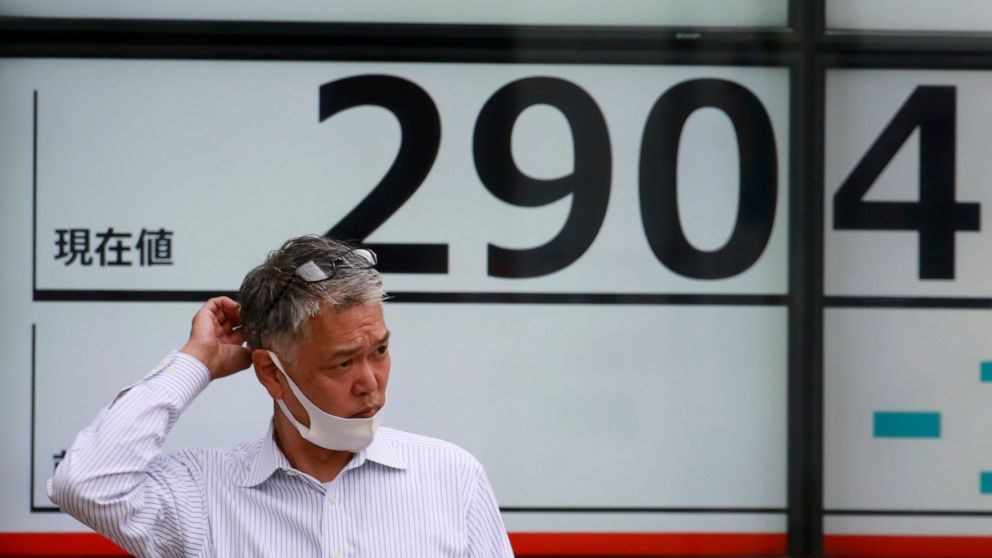Asian markets lower after Wall Street recovers to new high
Asian stock markets have declined after Wall Street hit a new high as investors looked ahead to manufacturing indicators from Japan, China and South Korea
BEIJING — Asian stock markets declined Monday after Wall Street hit a new high as investors looked ahead to manufacturing indicators from Japan, China and South Korea.
Shanghai, Tokyo and Seoul declined. Trading in Hong Kong was suspended due to a weather alert.
On Friday, Wall Street’s S&P 500 index turned in its biggest weekly gain in four months.
Investors have been encouraged by progress in Washington on an infrastructure spending plan. Markets have recovered from the Federal Reserve’s announcement that it might start raising interest rates sooner than expected.
The S&P’s gain “is generally telling of improving sentiment,” said Mizuho Bank in a report.
The Shanghai Composite Index declined less than 0.1% to 3,606.02 and the Nikkei 225 in Tokyo shed 0.1% to 29,048.02.
The Kospi in Seoul shed 0.2% to 3,296.97 while the ASX-S&P 500 in Sydney slipped less than 0.1% to 7,306.80.
India’s Sensex opened down 0.2% at 52,827.02. New Zealand, Bangkok and Jakarta also declined, while Singapore advanced.
Investors are looking ahead to monthly surveys of manufacturing activity in Japan, China and South Korea.
Production is recovering from last year’s plunge but faces shortages of processor chips and other disruptions.
Markets have swung between optimism about economic recovery supported by the rollout of coronavirus vaccines and unease that the Fed and other central banks might feel pressure to pull back stimulus to cool rising inflation.
The Fed, which says it believes U.S. price surges are temporary, surprised traders by saying it might start raising rates by late 2023, earlier than the previous 2024 target. Markets sank but have recovered most of their losses.
On Friday, the Commerce Department said one inflation measure closely watched by the Fed increased 0.4% in May and is up 3.9% over the past 12 months, well above the Fed’s 2% target.
Also Friday, President Joe Biden and a group of senators agreed on a $973 billion, five-year plan for spending on roads, railways and ports.
On Wall Street, the S&P 500 rose 0.3% to 4,280.70. That gave the index a weekly gain of 2.7%, its biggest since Feb. 5.
The Dow Jones Industrial Average gained 0.7% to 34,433.84 while the Nasdaq Composite lost 0.1% to 14,360.39.
In energy markets, benchmark U.S. crude lost 1 cent to $74.04 per barrel in electronic trading on the New York Mercantile Exchange. The contract rose 75 cents to $74.05 a barrel Friday. Brent crude, the basis for international oil prices, shed 10 cents to $75.28 per barrel in London. It gained 62 cents the previous session to $76.18.
The dollar fell to 110.62 yen from Friday’s 110.84 yen. The euro declined to $1.1924 from $1.1932.
![]()


